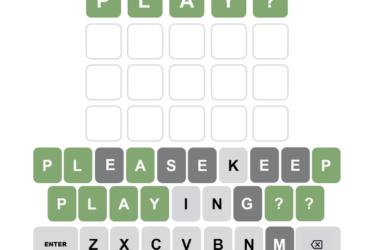It’s no secret that attending McGill comes with a slew of academic and social demands. As a result, many students experience anxiety, depression, and other mental health problems during their time here. While there are ways to treat such disorders, including medication and therapy in persistent cases, another method to alleviate their symptoms is meditation. As a practice that has existed for centuries, meditation comes with a range of benefits, including reduced stress, increased productivity, and improved moods overall.
Meditation is the practice of contemplation or focus for a fixed period of time. It typically entails sitting still and often focusing on one thing, whether one’s breath, a mantra, or a guided recording. Many students who meditate opt for a few minutes per day, while others try for 20 minutes in the morning and evening. There is no rigidity to scheduling, because meditation is what one makes of it. Taking the opportunity to meditate, even if it’s just for five minutes, is beneficial nonetheless.
Netanel Schondorf, U2 Arts, sets aside time everyday to just sit and breathe. He has been meditating for three years, and uses the practice as way to alleviate his anxiety.
“If you are an anxious person and tend to get lost in cyclical thought patterns, one thing that meditation will do is remove you from the situation and let you be a passive observer to your thoughts, and not necessarily pursue them and not get stuck in them,” Schondorf said.
Aside from experiencing the desired long-term benefits for his mental health, Schondorf found that meditation helped him look inward and harness a sense of self-awareness. Over time, meditating aided in regulating his sleep schedule and altered his relationship to stress.
“[Meditation] will make the stress you feel healthier,” Schondorf said. “Stress is just going to happen, and trying to fight stress doesn’t work very well, but coming to terms with it tends to work a lot better.”
In addition to managing stress and anxiety, Schondorf developed productive working habits as a result of his meditation. When presented with the choice of watching Netflix or studying, he has fostered a sense of self-discipline to choose to hit the books. With all of its undeniable benefits and overall positivity, Schondorf recommends pursuing meditation with patience to all.
“Don’t go into it with any expectations,” Schondorf said. “It’s a pretty long-term thing, and the changes are subtle over time. What I will say is that even if you don’t see immediate results, of all the activities I do that have made my life better, this one has the lowest investment with the highest payoff.”
Niketan Valapakam, U3 Management, has been meditating for four months. He began after experiencing sadness and anger following a job rejection.
“When I realized my state of happiness is dependent on such small things around me, I can’t really go far in life,” Valapakam said. “I decided to get more introspective about how I feel about things.”
Valapakam took lessons through the program Inner Engineering, which includes lessons online, in books, and at retreats. He started seeing small changes in his mindset in the first three to four days, and continues to notice improvements in his mood and outlook.
“I am using this tool to further enhance the things that I don’t know and as I keep using this tool, things are getting more clear,” Valapakam said. “I just have general introspective clarity about things, starting with myself as a person [….] When starting meditation, be skeptical, not cynical, in order to allow something to work, and if it does work, then you are the living experience of the truth that is happening.”
Meditation has stood the test of time and has benefited many at McGill. If students are interested in giving meditation a try, there are plenty of how-to-websites, with free guided meditation and breathing exercises of all sorts of lengths that can fit into any schedule or location: Headspace or Calm are just two of the many free meditation apps available. Furthermore, the McGill Office of Spiritual and Religious Life offers free campus meditation services. With a jump-start on meditation, perhaps the benefits will kick-in just in time for finals–so keep calm, and meditate on.
Meditation is not meant to be a cure-all for depression and anxiety, and should one experience persistent symptoms of these disorders, seeking help through medicine and therapy is the recommended route. McGill offers both psychiatric and counselling services, both of which students can and are encouraged to use. If you find yourself in a crisis, you can call the McGill Nightline at 514-398-6246 or the Quebec National Crisis Line at 1-866-277-3553.










Meditating is pretty much a similar thing as daydreaming, only completed with intent. You understand when your thoughts go off at a tangent and you also think a situation thru in your mind, often thinking of various outcomes? well that exercise is meditating.
If you are interested in more info for learning meditation, you may wish to refer to this site : howtodomeditation.life